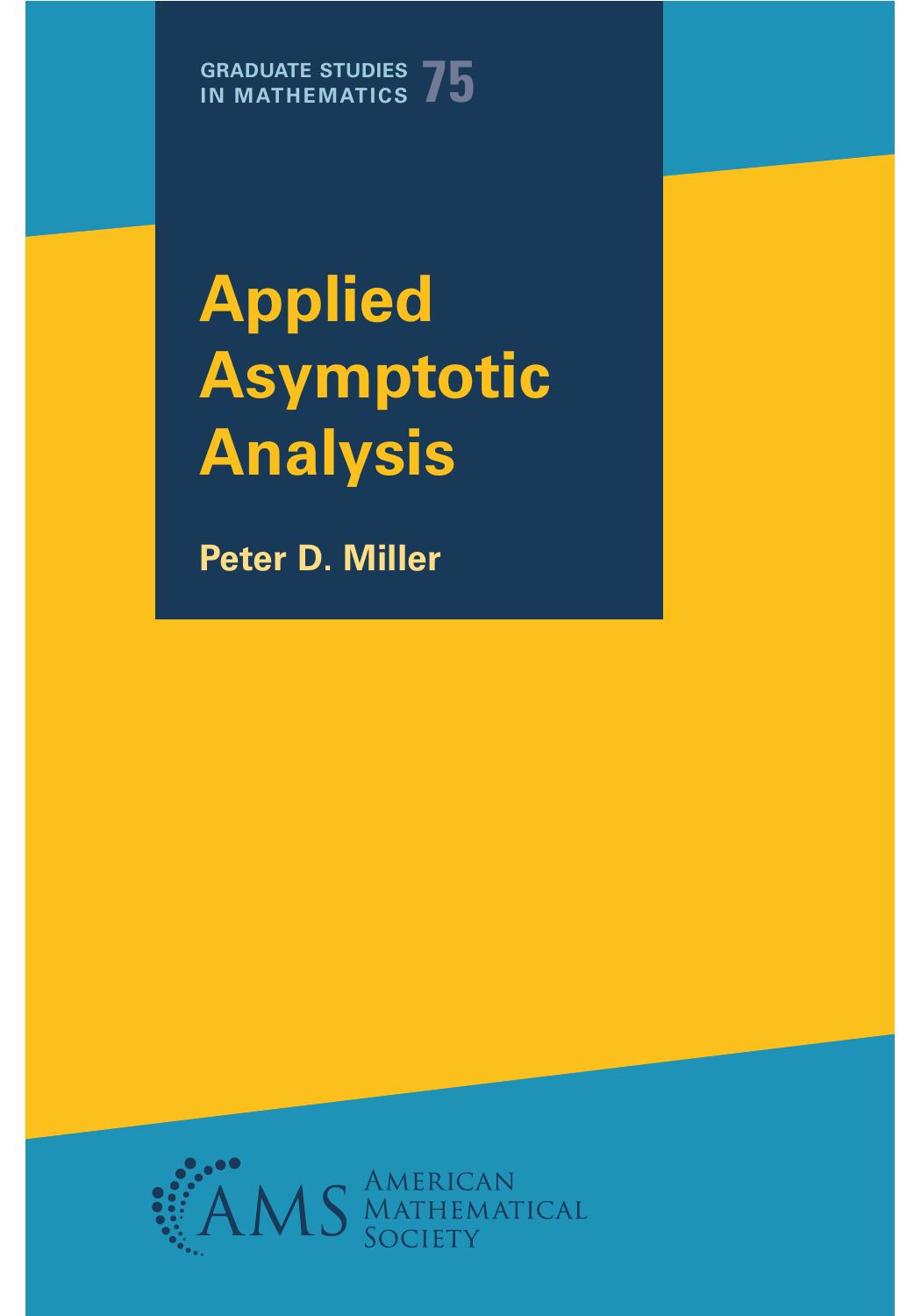

Most ebook files are in PDF format, so you can easily read them using various software such as Foxit Reader or directly on the Google Chrome browser.
Some ebook files are released by publishers in other formats such as .awz, .mobi, .epub, .fb2, etc. You may need to install specific software to read these formats on mobile/PC, such as Calibre.
Please read the tutorial at this link: https://ebookbell.com/faq
We offer FREE conversion to the popular formats you request; however, this may take some time. Therefore, right after payment, please email us, and we will try to provide the service as quickly as possible.
For some exceptional file formats or broken links (if any), please refrain from opening any disputes. Instead, email us first, and we will try to assist within a maximum of 6 hours.
EbookBell Team

4.7
96 reviewsThis book is a survey of asymptotic methods set in the current applied research context of wave propagation. It stresses rigorous analysis in addition to formal manipulations. Asymptotic expansions developed in the text are justified rigorously, and students are shown how to obtain solid error estimates for asymptotic formulae. The book relates examples and exercises to subjects of current research interest, such as the problem of locating the zeros of Taylor polynomials of entire nonvanishing functions and the problem of counting integer lattice points in subsets of the plane with various geometrical properties of the boundary.
The book is intended for a beginning graduate course on asymptotic analysis in applied mathematics and is aimed at students of pure and applied mathematics as well as science and engineering. The basic prerequisite is a background in differential equations, linear algebra, advanced calculus, and complex variables at the level of introductory undergraduate courses on these subjects.
The book is ideally suited to the needs of a graduate student who, on the one hand, wants to learn basic applied mathematics, and on the other, wants to understand what is needed to make the various arguments rigorous. Down here in the Village, this is known as the Courant point of view!!
—Percy Deift, Courant Institute, New York
Peter D. Miller is an associate professor of mathematics at the University of Michigan at Ann Arbor. He earned a Ph.D. in Applied Mathematics from the University of Arizona and has held positions at the Australian National University (Canberra) and Monash University (Melbourne). His current research interests lie in singular limits for integrable systems.
ReadershipGraduate students and research mathematicians interested in pure and applied mathematics and science and engineering.